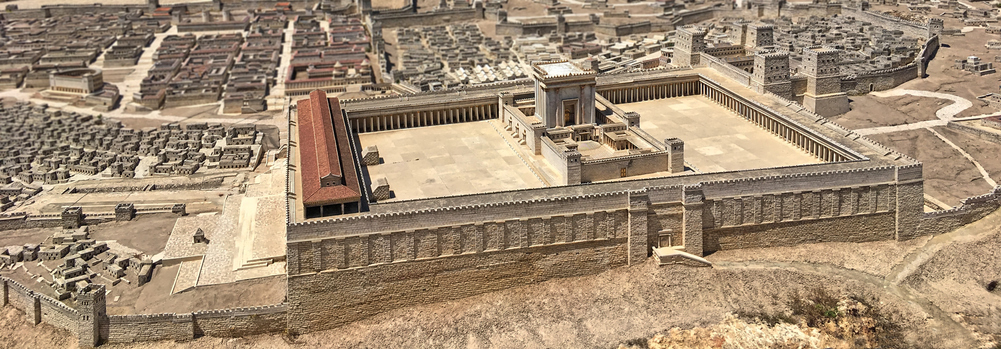
I Chronicles 17 and I Kings 18 inform us of King David wanting to build a temple for God, God’s gracious refusal, God making significant promises to David, and Solomon actually building a temple for the ark of the covenant. These chapters are loaded with contrasts:
My palace versus a tent. David was observant. Sensitive to the fact that while he lived in a palace, the ark of the covenant was housed in a tent; he lived in splendor while the ark, which represented God to His people, was placed in a portable, traveling shelter. Blessed are those who notice the circumstances around them and the conditions under which other people live.
Hoped to do good versus Not Actually Doing It We are told that David did well in wanting to build a temple to honor God (I Kings 8:18). That is, God credited him for his desire, even though he did not actually build the temple. If men can be guilting of adultery by a wrong look (Matthew 5:28), in the same way, God gives people positive credit for thinking and/or desiring things that honor Him, even if the individual does not actually do a given good deed.
Solomon’s Plans versus Dad’s. Many fathers hope their sons will follow in their footsteps. But not all sons want to do so. A famous baseball player has a son – does that son also want to play professional baseball? Does he have the athleticism to do so? Maybe. Maybe not. In the middle-ages, a male was named for what he did – Miller, Smith. Sons born to them would make their living as a miller of flour or an ironsmith.


Some sons do what their father’s did. For example, Chesty Puller (pictured at left), a highly decorated military man (he won the Navy Cross for heroism and gallantry five times), had a son, Lewis Burwell Puller, Jr. who did want to do what Dad had modeled. Junior lost both legs and some fingers in Vietnam (pictured at right).
When David (a driving, dominating, highly productive, authoritative ruler) had a son like Solomon (a man of letters, a naturalist, a comparatively quiet man), did that son want to accept Dad’s project? Solomon did. He was God’s man to build a temple in Jerusalem. So our text addresses (to some degree) inherited roles; the older generation directing how the younger generation will live; a dominant father imposing his will on his sons/daughters. A father turning a project over to a son.
A Temple versus A Dynasty. David has one thing in mind – building an appropriate resting place for the ark of the covenant. How did God respond? With something far larger and more comprehensive than David’s one-issue focus.
Local versus international. Here versus international. Now versus later. The temple was to be built here; locally in Jerusalem. God’s response has to do with international relationships – a temple that would represent Him to other nations.
David doing for God versus God Doing for David. A switch. While David was focused on building a dwelling place for the ark, God promised to build a dynasty for David and his extended family.
Now versus Centuries into the Future. David had to take God’s No in stride. He had to accept it. His dream was on hold. David had to be patient.

Accepting an Alternative versus Forcing One’s Own Will. David could have tried to force the issue – he wanted to build the temple, as the crowning achievement of his long reign. He had to accept that he was not to do this. Contentment. Resting and trusting, even if other things tug at our minds. Patience. David wanted to do this now (meaning before his death). Instead, he accepted the alternative–God would do it in His good time. God spoke about his son building a dwelling place, as well as hundreds of years into the future.
Because Solomon accepted this project from Dad, it remained for a long, long time and was the chief accomplishment of his reign. Blessed are such sons who take up where Dad left off.


Recent Comments